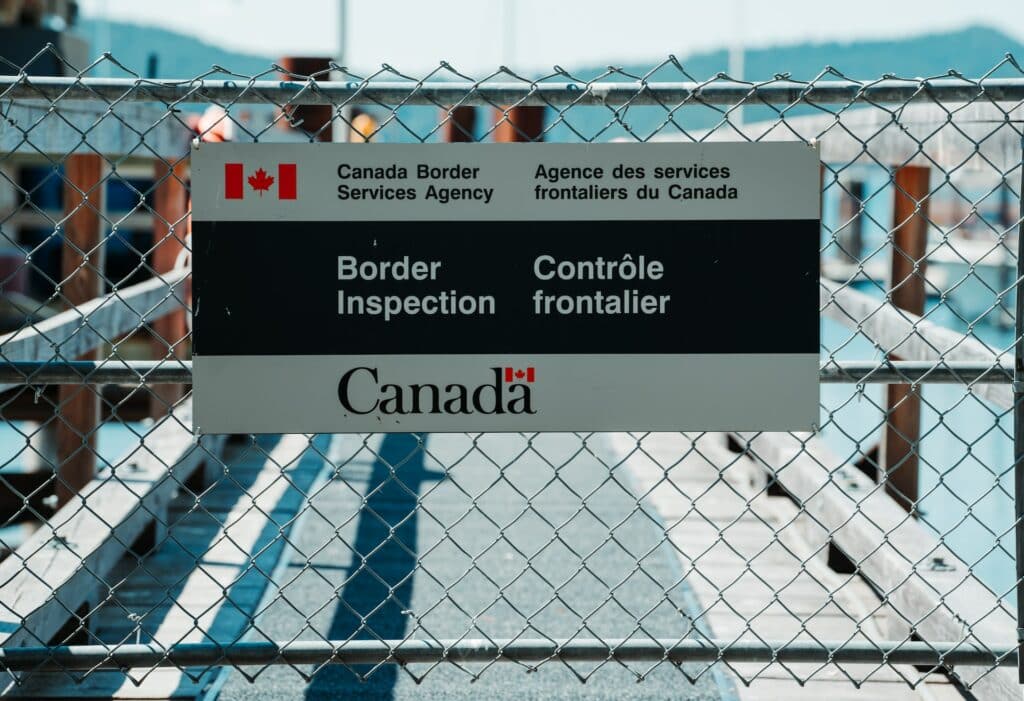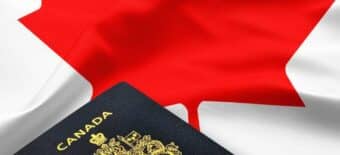A lot goes into planning any successful trip, whether you’re planning to visit Canada for business, pleasure or family reasons, as you already know, it helps to plan ahead so that you can enjoy your time once you arrive. However, there are some things that need to be taken into account prior to your arrival to Canada, including whether you have a criminal conviction on your record.
Canadian Border Patrol Can Access Your Criminal History
Border patrol is responsible for everyone who crosses into Canada. Therefore, if they choose to search your vehicle or do a background check on you, they can. Canadian border agents also have access to a wide range of criminal databases, including that of the Federal Bureau of Investigation (FBI), so if they see that you have an offense on your record, you could be turned away at the border.
Thankfully, there are solutions to overcome your criminal inadmissibility. One of these options would be to apply for a temporary resident permit (TRP) before traveling to Canada. A TRP grants you the ability to temporarily enter Canada for travel, study or work purposes, for a predetermined period of time, and up to two years in most cases.
Ideally, and when time permits, you should apply for a TRP several months prior to your planned trip to Canada to ensure that you have a letter of approval for the TRP handy before you travel to Canada. But what happens if you have a last-minute trip planned, or need to travel to Canada on short-notice, for example you need to enter Canada in the next few days or weeks? In this case, you can apply for a TRP at the border. This is not always the optimal solution, as the border agent will make their decision on the spot, rather than having a letter of approval from the government as is the case with the regular TRP application process. Note that border agents understand that at times an individual has no choice but to apply directly with them at the border and they will be able to process the application on the spot. However, if you’re not fully prepared, you could be denied entry and sent back home, this is why most people will choose to work with a Canadian immigration attorney to help them with the process and make this process less stressful.
What is an Expedited Temporary Resident Permit?
When you apply for a TRP at the border, it’s considered an “expedited” TRP. Please remember that this option should be viewed as an emergency solution in cases where you don’t have enough time to apply for a TRP in advance with the Canadian government. For example, if you just found out about a work trip to Canada in a few weeks, you won’t have enough time to request a regular TRP, and will instead be able to apply for it directly at the border.
In order to apply for an expedited TRP, your need for entry must be legitimately urgent. If you do not need to go to Canada immediately, it would be best to wait and apply for a TRP with the government to ensure that you will have an approval letter handy when you travel. Generally speaking, US citizens, residents and other foreign nationals who are traveling to Canada for work purposes have a high chance of getting approved for an expedited TRP at the border, as their reasons for entering Canada are deemed to be urgent, as would be the case for a family emergency, a last minute surprise trip, or even a layover at a Canadian airport for example.
What Do I Need to Apply for a TRP at the Border?
When applying for a TRP at the border, it’s crucial that your application is completed without any errors or omissions. Border patrol agents will be making their decision on the spot, so anything that is missing or wrong can hurt your chances of being approved.
You can apply for a TRP at any port of entry (POE), whether you are crossing by land or by air at any place where you can legally enter Canada. Below are some examples of the supporting documents you’ll need to have with you. To discuss your individual situation, please contact one of our immigration attorneys at KLM Immigration for help:
- The application. First and foremost, you need to fill out and complete Form IMM 1444, the application for criminal rehabilitation. Make sure that all of the information is correct and complete.
- Police clearance. A police clearance, or police certificate, is a document of your criminal record. It states your previous and current criminal history.
- Passport. Make sure that your passport is valid when you travel to Canada.
- FBI clearance. As an American citizen, you may also need FBI clearance. This clearance must not be older than six months at the time of the application for the TRP.
- Court documents. Court documents vary, so it’s best to speak with an immigration lawyer who can help you gather the right paperwork.
- Other supporting documents. You may also need other supporting documents, such as bank statements, a letter of remorse and recommendation letters.
How Much Does it Cost to Apply for a TRP at the Border?
Regardless of whether you submit your TRP application to the Canadian government, or if you apply at the border, there is a $200 CAD government processing fee for each. If you plan to apply for a TRP at the border, the decision is usually made within one to two hours. However, there is never a guarantee the application will always be approved as it remains to the full discretion of the border agent to allow your entry or not.
If you are planning on traveling to Canada, and you have a criminal conviction on your record, please contact our attorneys at KLM Immigration at 1(888) 603-3003 for a free consultation. We will assess your situation and determine the best course of action. Our attorneys will help you prepare for your trip by making sure that you have the best chance of being able to enter Canada despite having a criminal offense on your record.



